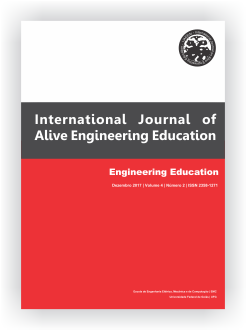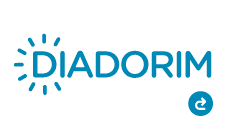The Importance of Internationalization on Engineering Programs from Minas Gerais Universities: UEMG’s Case
DOI:
https://doi.org/10.5216/ijaeedu.v4i2.48293Keywords:
Engineering Education, Alive Engineering Education, IJAEEdu, ICAEEduAbstract
Gradually instigated by cultural, economic and social transformations generated due to globalization, especially with regard to engineering, both universities and students are looking for new forms of teaching and learning. Concomitantly, as institutions and the labor market increasingly aspire skilled professionals, this search seems to be directed outside the country where there is greater availability of technology and new qualifications, as well as the possibility of proficiency in another language. In this way, the implementation of academic mobility programs such as Science without Borders (CsF), have great importance for the internationalization of engineering courses in Brazil's universities. Through this exchange, undergraduates have the opportunity to train and study abroad in order to maintain contact with competitive education systems in relation to technology and innovation, bringing back such knowledge to universities and to the nation as a whole. In this sense, this work aims to measure and emphasize the importance of this program for Minas Gerais universities, with focus on the performance evaluation of the UEMG Engineering campus, based in João Monlevade city. With the help of the CsF Portal and support of the UEMG International Relations Advisory, it was possible to collect general data about the program and find the number of students which were contemplated with scholarships in the four engineering courses of UEMG from 2011 to 2016. In addition, a questionnaire was applied to students who have already participated in this exchange for a qualitative effect. The results showed that engineering was the most requested area and that Minas Gerais universities presented great potential in the number of scholarships contemplated by the program. In a closer evaluation of the UEMG, it was observed that there is a disparity between the engineering courses regarding the number of scholarship students, highlighting the Mining Engineering course in detriment of the others. However, it should be noted that this program was very important since it has allowed students to acquire more knowledge in specific subjects of their courses, improve another language, experience new cultures as well as learn new methodologies of teaching and assessment, such techniques that they can bring into their engineering programs in Brazil.
References
AVEIRO, T. M. M. O Programa Ciência sem Fronteiras como Ferramenta de Acesso à Mobilidade Internacional. Revista de Educação, Ciência e Tecnologia, Canoas, v. 3, n. 2, p. 1-21, 2014.
BERRY, C.; TAYLOR, J. Internationalisation in higher education in Latin America: policies and practice in Colombia and Mexico. Higher Education, v. 67, n. 5, p. 585-601, 2014.
BRASIL. Decreto nº 7.642, de 13 de dezembro de 2011. Institui o Programa Ciência sem Fronteiras. Brasília. Diário Oficial da União, Brasília, 14 dez. 2011.
MATTAR, F. N. Pesquisa de marketing: metodologia, planejamento, execução e análise. 2ª ed. São Paulo: Atlas, 1994, 2v., v.2.
BRASIL. Portal Ciência sem Fronteiras. Brasília: 2016. Disponível em: <http://www.cienciasemfronteiras.gov.br>. Acesso em: 15 Jan. de 2017.
SILVA, Richéle T. P. Política de incentivo a formação de pesquisadores: reflexões sobre o programa Ciência sem Fronteiras. In: IX ANPED-SUL - A Pós-graduação e suas interlocuções com a Educação Básica, 2012, Caxias do Sul/RS.
Downloads
Published
Issue
Section
License
Copyright
The author is responsible for the following statements by submitting an article electronically in the International Journal of Alive Engineering Education (IJAEEdu):
a) States that the document in question was reviewed by an expert in English language and it is an original work and it holds the prerogative to grant the rights contained in this license. It also states that the document does not infringe, as far as it is possible to know the rights of any other person or entity.
b) If the document in question contains material which does not hold the copyright, the author states have obtained the copyright holder’s permission to grant the Universidade Federal de Goiás (UFG) the rights required by this license, and that such material whose rights are third is clearly identified and acknowledged within the text or content of the document.
c) States that the study was conducted in accordance with the ethical standards of all applicable institutional, local, national and international guidelines.
d) It also states that any person appointed as author or co-author of the document is aware of it and agrees to be so appointed.
Authorization Form
As responsible for the submission of the document, I authorize the School of Electrical, Mechanical and Computer Engineering of the Federal University of Goiás to provide the paper free of charge, through the Electronic System for Publishing Magazines UFG (SEER / UFG) or in printed form, without compensation of copyright, in accordance with Law No. 9610/98. Is allowed, reading, printing and / or download, as a promotion of the Brazilian scientific production. Any use of the work not authorized under this license or the copyright law is prohibited.



